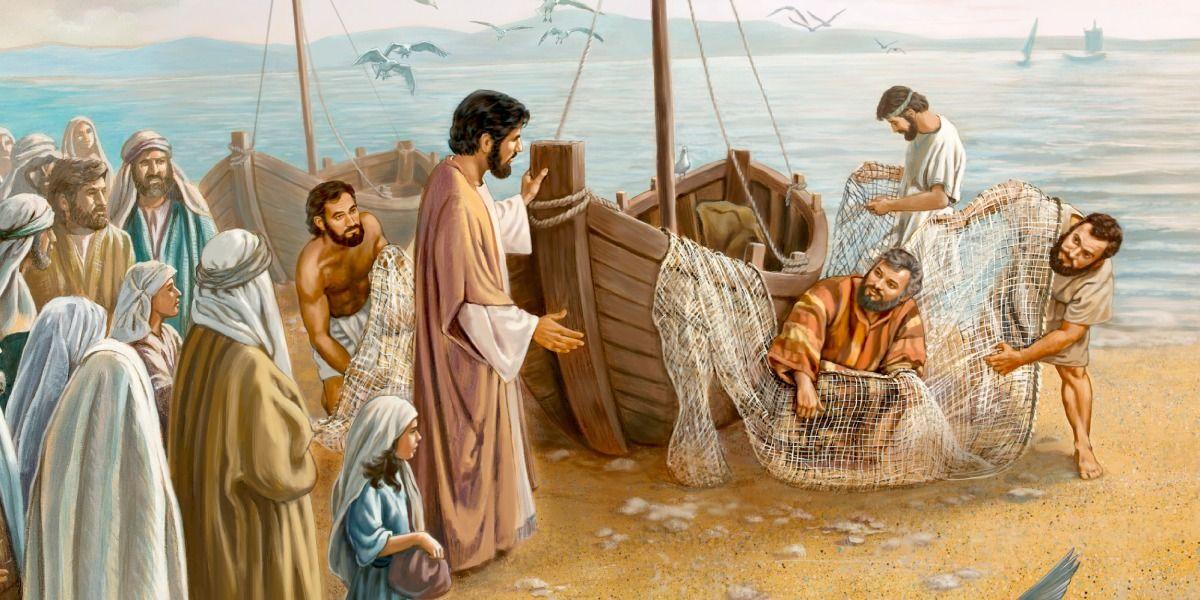
The origins of the Apostles, particularly those who were fishermen, provide a fascinating glimpse into the socio-cultural fabric of first-century Judea. This article elucidates which of the Apostles were engaged in the life of fishing and attempts to elucidate how their backgrounds might have influenced their spiritual journeys and the early Christian community. As we navigate this exploration, we will consider historical contexts, the significance of their vocation, and their impact on the foundational narratives of Christianity.
Understanding the Fishing Profession in Ancient Judea
Fishing was not merely a vocation; it was a vital livelihood for many in the region, particularly around the Sea of Galilee. The lake was teeming with fish, providing sustenance and economic opportunities for local communities. The fishermen’s trade was not perceived as a lowly profession; rather, it was a reputable means of supporting families. Knowledge of the rhythms of the water, the habits of fish, and the seasons played a critical role in their daily existence.
In order to comprehend the spiritual trajectories of the Apostles who were fishermen, one must first appreciate the societal implications of their work. These individuals often operated within tightly-knit communities, where collaboration and kinship were paramount. The very act of fishing required teamwork—communicating effectively and relying on each other’s skills. This principle of camaraderie would later translate into their collective mission as Apostles.
The Fishermen Apostles: An Overview
Among the twelve Apostles, four are traditionally recognized as fishermen: Peter, Andrew, James, and John. Each of these individuals not only shared a common vocation but also an intertwined journey that would shape the early Christian narrative.
1. Peter: The Rock of the Church
Peter, originally named Simon, was a fisherman from the town of Bethsaida. His character is often described as impetuous yet devoted. Encountering Jesus marked a transformative pivot in his life; when called to be a “fisher of men,” he relinquished his nets to follow the Messiah. This transition from a simple fisherman to an Apostle underscores the potency of Jesus’ call—suggesting that divine purpose often translates ordinary lives into extraordinary destinies.
Peter’s leadership role in the early church and his eventual martyrdom further accentuate the gravity of his calling. As the designated “rock” upon which Jesus would build His church, Peter’s background as a fisherman provided the perfect metaphor for his eventual responsibilities—leading and shepherding a diverse flock.
2. Andrew: The Forerunner
Andrew, the brother of Peter, was also a fisherman by trade. Notably, his role often goes unrecognized in the shadow of Peter’s prominence. However, Andrew was pivotal in identifying Jesus as the Messiah, initially bringing his brother to Christ. His innate proclivity for introducing others to Jesus reflects the collaborative spirit inherent within the fishing community. Therefore, Andrew’s contributions—while less heralded—are fundamental to understanding the broader mission of the Apostles.
3. James: The Zealous Leader
James, the son of Zebedee, was another prominent fisherman among the Apostles. Alongside his brother John, he operated a fishing business that would later become symbolic of their commitment to Christ. Known for his fervor, James represents the aspect of zeal that can propel individuals forward in faith. His martyrdom, being one of the first Apostles to be killed for his beliefs, emphasizes the profound dedication that characterizes those called forth from their nets.
4. John: The Beloved Disciple
John, the brother of James, completed the quartet of fishermen Apostles. His relationship with Jesus is described as particularly intimate, often referred to as the “Beloved Disciple.” John’s contributions to the New Testament through the Gospel, epistles, and Revelation highlight his profound theological insights, which might stem from his grounding in the quotidian life of fishing—a life attuned to patience and observation of nature. The metaphorical language of his writings often reflects the simplicity and depth he cultivated while mending nets by the shores of Galilee.
Significance of Their Fishing Background
The common thread of fishing among these Apostles extends beyond mere profession; it is inherently symbolic of the depth and breadth of their eventual mission. As fishermen, they were accustomed to uncertainty, adapting to the unpredictability of the waters. This adaptability would be vital in their new mission, where faith and resilience would play critical roles in propagating Christianity amidst challenges and persecutions.
A fascinating parallel can also be drawn between the act of fishing and preaching. Just as fishermen cast their nets wide to capture fish, the Apostles were called to spread the Gospel throughout the world—casting their nets of faith to capture souls. This evocative imagery resonates with the transformative nature of their work, pivoting from earthly to spiritual endeavors.
Conclusion
The exploration of which Apostles were fishermen reveals a profound narrative interwoven with themes of collaboration, transformation, and dedication. Their vocational backgrounds illustrate truly how ordinary lives can set a foundation for extraordinary missions. The apostles’ journeys from casting nets to spreading the Gospel resonate across centuries, still inspiring countless individuals seeking purpose and meaning in their lives. Understanding these Apostles’ true origins sheds light on the myriad ways they shaped the burgeoning Christian faith and continues to influence believers today.
